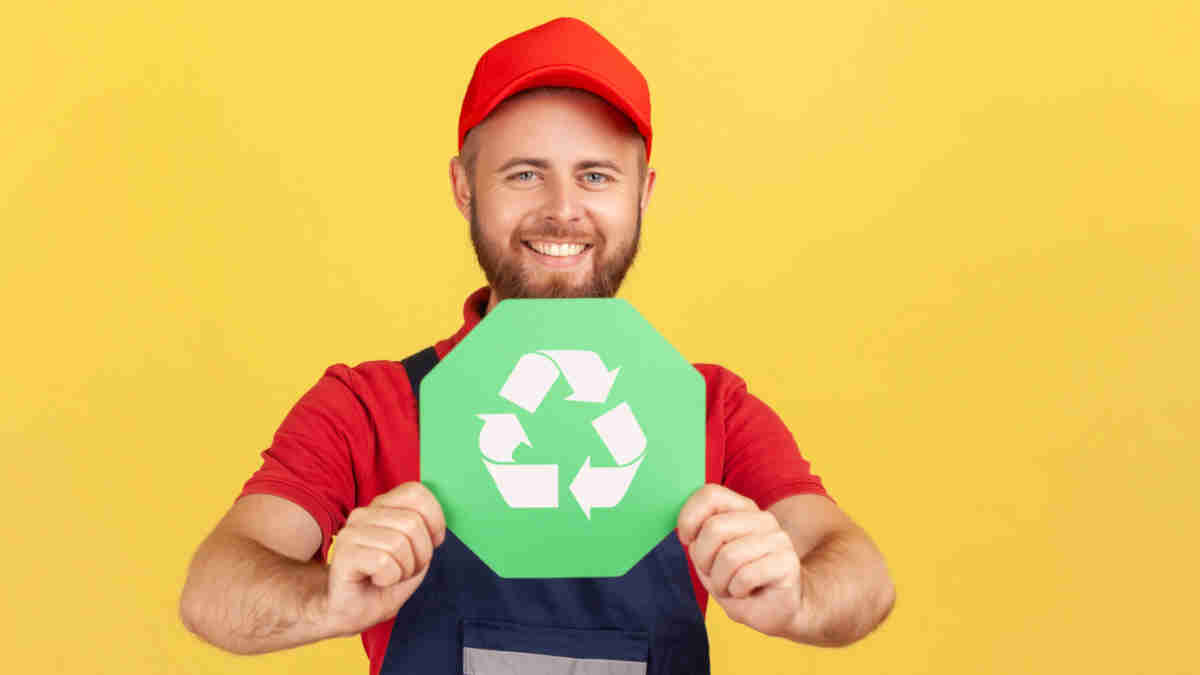Sustainability trends are driving SECOS’s growth
SECOS currently dominates Australian market with its compostable bags
We reached out to SECOS’ CEO, Richard Tegoni
The global shift towards sustainability is undeniable.
Countries worldwide are adopting stringent regulations aimed at curbing plastic pollution and promoting environmentally friendly alternatives.
In the US, for instance, California has required all organic waste to be composted as the state aims to reduce 56% of its total landfill.
In the EU, negotiators have just reached an agreement to ban single-use plastic packaging for fresh fruit and vegetables, mini hotel toiletries, and fast food in restaurants.
And in Australia, the government has committed to ambitious goals, with the National Plastics Plan stating that 70% of plastic packaging needs to be compostable.
One ASX company that’s strategically positioned to capitalise on these market trends is SECOS Group (ASX:SES), a Melbourne outfit that has established itself as a leader in sustainable packaging solutions.
SECOS’ MyEcoWorld products – launched in 2021 – are now prominently featured in 2,300 stores across major Australian retail chains such as Coles and Woolworths.
The company recently introduced MyEco bin liners, made from 95% recycled post-consumer soft plastic waste, and certified under the Global Recycled Standards (GRS).
Source: SECOS
Over the past 10 years, SECOS has strategically divested away from its traditional plastics manufacturing base towards biodegradable and compostable products.
“We now specialise in manufacturing compostable resins and sustainable packaging that we distribute around the world,” said SECOS CEO, Richard Tegoni.
“In Australia, we are the number one provider of compostable bin liners and bags to councils and in retail outlets, including Woolworths, Coles and other retail chains.”
“Our aim is to be a 100% sustainable business. So we want to manufacture purely sustainable products, that’s our mission”
Focus on research and development
As the only listed compostable plastics business on the ASX, SECOS has been recognised with the prestigious Silver EcoVadis rating.
This rating signifies that a company has achieved a high level of sustainability performance based on EcoVadis’s (an environmental rating agency) assessment criteria.
SECOS’ biodegradable products primarily utilise various grades of resin, but its core resin grades, particularly those used in the MyEco bag products, are derived from corn starch.
This corn starch comes from a commercial grade of non-GMO corn, ensuring the product is entirely renewable.
“Commercial graded non-GMO produced corn enables the product to be naturally composted back into the environment, returning valuable nutrients back to the soil,” said Tegoni.
The process of turning corn starch into compostable products involves processing the starch into a polymer using additives, and blending it with other compostable materials like Polyhydroxyalkanoates (PHA).
SECOS blends its corn starch with higher contents of PHA to achieve the required product characteristics, ensuring natural biodegradability of the end products.
“This blend of materials allows our bags to fulfil their intended purpose effectively, while also being environmentally friendly.”
In discussing their usage, Tegoni explained the crucial role of bioplastics in tackling pressing issues such as food waste.
Compostable bags and bin liners, he said, enable households to separate food waste effectively, facilitating food waste composting instead of landfill disposal, thereby mitigating the production of methane, a potent greenhouse gas.
“There’s a huge opportunity here with bioplastics to replace not only conventional plastic, but also to collaborate with local governments in diverting food waste.”
Research and development has always been a big part of SECOS’ strategy to lead in this space.
Over the past few years, the company has significantly invested in biopolymer technology through its Global Research and Development Center as well as its three biopolymer plants in Asia.
“Our goal is to ensure that our compostable bags and packaging not only meet, but exceed industry standards for environmental sustainability,” said Tegoni.
“Some of the projects we’re working on are, for instance, [tackling questions such as] how do we make our compostable bags compost quicker in an anaerobic environment, and how do we make the process more efficient?”
Global expansion
In Australia, SECOS’s products have achieved a significant market share.
“We have around 45% market share of compostable bin liners in major retailers, and we supply to about 30% of local government councils,” Tegoni said.
However, Tegoni pointed out that this represents only a small market segment for the company.
“The idea of the Australian market was to create a model that works, and with data points that we can use to go overseas,” he says, adding that the US market in particular offers a compelling opportunity.
SECOS has strategically entered the North American market through partnerships with distributors like Jewett-Cameron Trading Company (NASDAQ: JCTCF), targeting both the United States and Canada.
“We’ve leveraged relationships established over several years to enter new markets effectively,” Tegoni said.
SECOS has also diversified its market footprint into Latin America, focusing on the raw resin market.
“We’re selling our raw materials into the this market to converters that make compostable products without really doing all the finished product there at the moment.”
Charting a course to profitability
From a financial perspective, SECOS has successfully navigated recent challenges such as supply chain disruptions and initial market entry costs in North America.
Despite a temporary decline in sales earlier this year, Tegoni is optimistic about future growth prospects, citing improving sales trends and expanding market acceptance.
“We saw a turnaround in Q3 with sales increasing from an average of $3 million to $4 million per quarter. We anticipate similar growth going forward,” he noted.
The path to profitability for SECOS hinges on sustained revenue growth, he said, supported by enhanced operational efficiencies and market penetration in key regions.
“Our cost base has stabilised, and our margins are improving. Top-line growth in established and emerging markets will be critical to achieving profitability.”
Looking ahead, Tegoni believes SECOS will continue to capitalise on the global shift towards sustainable packaging solutions, driven by regulatory support and changing consumer preferences.
“We’ve laid the groundwork, established partnerships, and proven our products in demanding markets. SECOS is ready to seize the opportunities ahead and drive sustainable change globally.”
“We’re a pure sustainability play. Investors interested in ESG or sustainability may want to consider SECOS,” Tegoni said.
The views, information, or opinions expressed in the interview in this article are solely those of the interviewee and do not represent the views of Stockhead.
Stockhead has not provided, endorsed or otherwise assumed responsibility for any financial product advice contained in this article.
The post SECOS rides high on global trend towards sustainable packaging, eyes American markets appeared first on Stockhead.






















